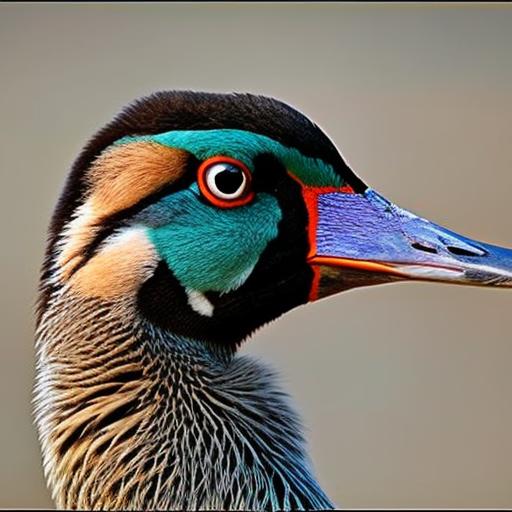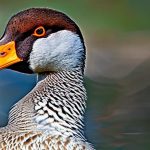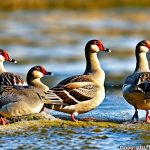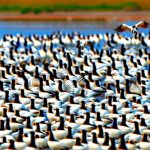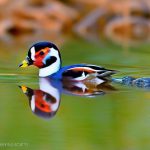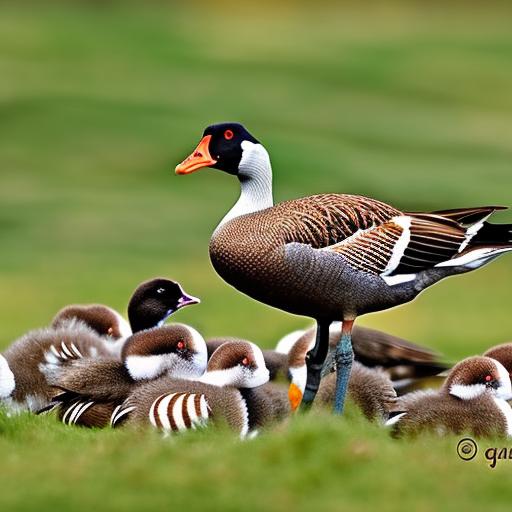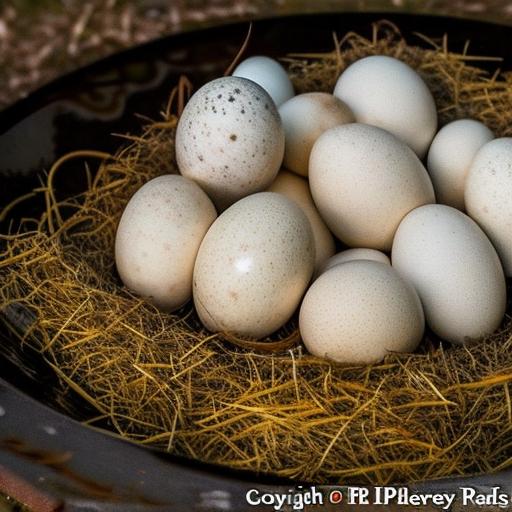Domesticated geese have been a part of human civilization for thousands of years. These birds, which are descended from wild geese, have been selectively bred for various purposes, including meat production, egg production, and even as pets. Domesticated geese are known for their intelligence, loyalty, and adaptability, making them great companions for those who choose to keep them as pets.
One of the reasons why domesticated geese make great pets is their social nature. Geese are highly social animals and form strong bonds with their human caretakers. They are known to be loyal and protective, often acting as guard animals and alerting their owners to any potential threats. Additionally, geese are intelligent creatures that can be trained to perform various tasks and tricks. They can also be quite affectionate towards their owners, often seeking out physical contact and enjoying being petted.
Key Takeaways
- Domesticated geese are descendants of wild geese and have been bred for thousands of years for their meat, eggs, and feathers.
- Popular breeds of domesticated geese include Toulouse, Embden, and Chinese geese, each with their own unique characteristics.
- Domesticated geese are social animals that are intelligent, loyal, and protective of their flock.
- The history of domesticated geese dates back to ancient Egypt and Rome, where they were considered a symbol of wealth and power.
- Breeding and raising domesticated geese requires proper housing, nutrition, and care, and can be a rewarding experience for farmers and hobbyists alike.
Popular Breeds of Domesticated Geese
There are several popular breeds of domesticated geese, each with its own unique characteristics and uses. One of the most well-known breeds is the Toulouse goose, which is prized for its large size and meat production capabilities. Toulouse geese have a calm and docile temperament, making them easy to handle and raise.
Another popular breed is the Embden goose, which is known for its white plumage and large size. Embden geese are often raised for meat production but can also be kept as pets due to their friendly and sociable nature.
The Chinese goose is another popular breed that is often kept as a pet or for ornamental purposes. These geese have distinctive knob-like growths on their bills and are known for their loud honking calls.
Characteristics of Domesticated Geese
Domesticated geese have a number of physical and behavioral characteristics that set them apart from their wild counterparts. In terms of physical characteristics, domesticated geese are generally larger and heavier than wild geese. They have been selectively bred for meat production, resulting in birds with plump bodies and ample amounts of meat.
Behaviorally, domesticated geese are more docile and sociable than their wild counterparts. They are known to form strong bonds with their human caretakers and can be quite affectionate towards them. Domesticated geese are also highly intelligent and can be trained to perform various tasks and tricks.
History of Domesticated Geese
The domestication of geese is believed to have started around 4,000 years ago in ancient Egypt. The Egyptians were the first to selectively breed geese for specific traits, such as meat production and egg-laying capabilities. Over time, domesticated geese spread to other parts of the world, including Europe and Asia.
In ancient times, domesticated geese were primarily used for their meat and feathers. The meat of geese was considered a delicacy and was often served at feasts and special occasions. The feathers of geese were used for making pillows, mattresses, and quill pens.
Breeding and Raising Domesticated Geese
Breeding domesticated geese involves selecting suitable breeding pairs and providing them with the proper conditions for mating. Geese are monogamous animals and will typically mate for life. Once the female goose lays her eggs, they can either be left with the parents to incubate or placed in an incubator.
Incubation typically takes around 28-30 days, during which time the eggs need to be kept at a constant temperature and humidity level. Once the goslings hatch, they need to be kept warm and provided with a suitable brooder until they are old enough to join the rest of the flock.
Raising goslings involves providing them with proper nutrition, shelter, and socialization. Goslings need a balanced diet that includes a mix of grains, greens, and protein sources. They also need access to clean water for drinking and bathing. As they grow, goslings can be gradually introduced to the rest of the flock and allowed to roam freely.
Uses of Domesticated Geese
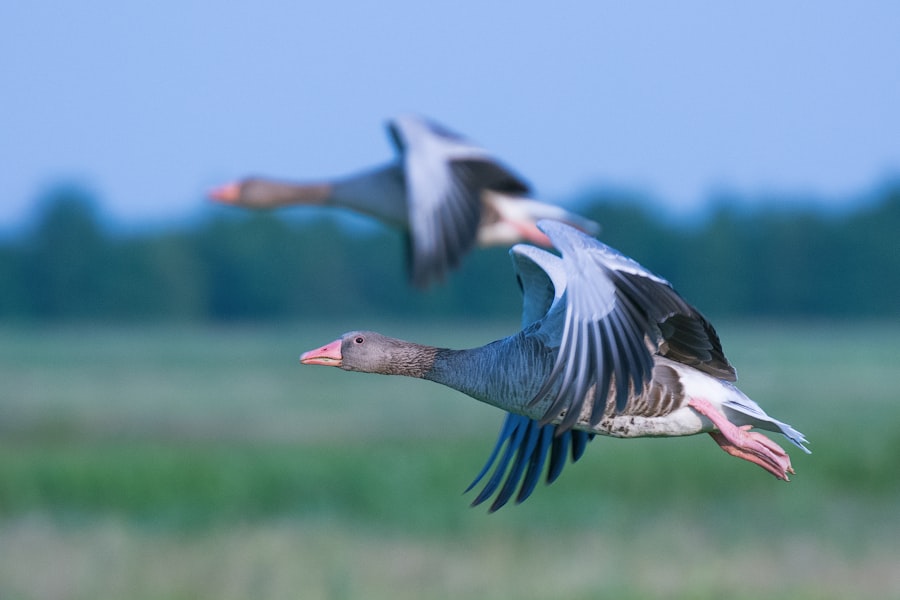
Domesticated geese have a variety of uses, including meat production, egg production, pest control, and lawn maintenance. Geese are known for their high-quality meat, which is lean and flavorful. They are often raised for meat production on farms and can provide a sustainable source of protein.
In terms of egg production, geese are known to lay large eggs that are rich in nutrients. Goose eggs are often used in baking and cooking and are prized for their rich flavor.
Geese can also be used for pest control purposes. They are natural grazers and can help keep grass and weed growth under control. Additionally, geese are known to be territorial and will often chase away intruders, making them effective at deterring unwanted pests.
Differences Between Domesticated and Wild Geese
There are several physical and behavioral differences between domesticated and wild geese. In terms of physical characteristics, domesticated geese are generally larger and heavier than wild geese. They have been selectively bred for meat production, resulting in birds with plump bodies and ample amounts of meat.
Behaviorally, domesticated geese are more docile and sociable than their wild counterparts. They are known to form strong bonds with their human caretakers and can be quite affectionate towards them. Domesticated geese are also highly intelligent and can be trained to perform various tasks and tricks.
Caring for Domesticated Geese
Caring for domesticated geese involves providing them with suitable housing, feeding them a balanced diet, and ensuring their health and hygiene needs are met.
Geese require a secure and spacious enclosure that protects them from predators and provides them with ample space to roam and graze. The enclosure should also have access to clean water for drinking and bathing.
In terms of feeding, geese require a balanced diet that includes a mix of grains, greens, and protein sources. They should have access to fresh water at all times and be provided with a suitable grit source to aid in digestion.
Health and hygiene are also important aspects of caring for domesticated geese. Geese should be regularly checked for signs of illness or injury and provided with appropriate veterinary care when needed. Their living quarters should be kept clean and free from waste buildup to prevent the spread of disease.
Health Issues in Domesticated Geese
Like any animal, domesticated geese can be prone to certain health issues. Some common health problems in geese include respiratory infections, parasites, and foot problems.
Respiratory infections can occur due to poor ventilation or exposure to cold and damp conditions. Symptoms of respiratory infections in geese include coughing, sneezing, nasal discharge, and difficulty breathing. Treatment typically involves providing supportive care and antibiotics if necessary.
Parasites such as mites and worms can also affect geese. Regular deworming and the use of appropriate parasite control measures can help prevent infestations. Foot problems, such as bumblefoot, can occur due to poor hygiene or injury. Regular foot checks and proper housing conditions can help prevent these issues.
Future of Domesticated Geese Breeding and Conservation
The future of domesticated geese breeding and conservation lies in the hands of dedicated breeders and conservationists. It is important to preserve the genetic diversity of domesticated geese breeds to ensure their long-term viability.
Conservation efforts should focus on maintaining healthy populations of domesticated geese breeds and promoting sustainable breeding practices. This includes avoiding excessive inbreeding, promoting genetic diversity, and ensuring proper care and welfare of the birds.
In terms of future trends, there is a growing interest in small-scale and backyard farming, which could lead to an increase in the popularity of domesticated geese as pets and for production purposes. Additionally, there is a growing demand for organic and locally sourced food, which could create opportunities for small-scale geese farmers.
Domesticated geese have a long and rich history with humans, serving as companions, sources of food, and even as pest control. They are intelligent, sociable, and adaptable creatures that can make great pets or provide valuable resources for those who choose to raise them. With proper care and attention, domesticated geese can thrive and bring joy to their owners for many years to come. Whether you are considering keeping geese as pets or for production purposes, they are sure to bring a unique and rewarding experience.
If you’re interested in learning more about breeds of domesticated geese, you might also enjoy reading this article on how to care for goslings. It provides valuable information and tips on raising healthy and happy goslings. Whether you’re a beginner or an experienced goose keeper, this article from Poultry Wizard is a great resource to help you navigate the world of geese breeding. Check it out here.
FAQs
What are domesticated geese?
Domesticated geese are geese that have been selectively bred by humans for their meat, eggs, feathers, or as pets.
What are some common breeds of domesticated geese?
Some common breeds of domesticated geese include Toulouse, Embden, African, Chinese, and Sebastopol.
What is the Toulouse breed of domesticated geese?
The Toulouse breed of domesticated geese is a large, heavy breed that is primarily raised for meat production. They have gray feathers and a calm temperament.
What is the Embden breed of domesticated geese?
The Embden breed of domesticated geese is a large, white breed that is primarily raised for meat production. They are also used for weed control and as pets.
What is the African breed of domesticated geese?
The African breed of domesticated geese is a medium-sized breed that is primarily raised for meat production. They have a distinctive knob on their forehead and are known for their loud honking.
What is the Chinese breed of domesticated geese?
The Chinese breed of domesticated geese is a small to medium-sized breed that is primarily raised for meat production. They have a distinctive knob on their forehead and are also kept as pets.
What is the Sebastopol breed of domesticated geese?
The Sebastopol breed of domesticated geese is a medium-sized breed that is primarily raised for their feathers. They have curly, white feathers and are also kept as pets.
Meet Walter, the feathered-friend fanatic of Florida! Nestled in the sunshine state, Walter struts through life with his feathered companions, clucking his way to happiness. With a coop that’s fancier than a five-star hotel, he’s the Don Juan of the chicken world. When he’s not teaching his hens to do the cha-cha, you’ll find him in a heated debate with his prized rooster, Sir Clucks-a-Lot. Walter’s poultry passion is no yolk; he’s the sunny-side-up guy you never knew you needed in your flock of friends!

